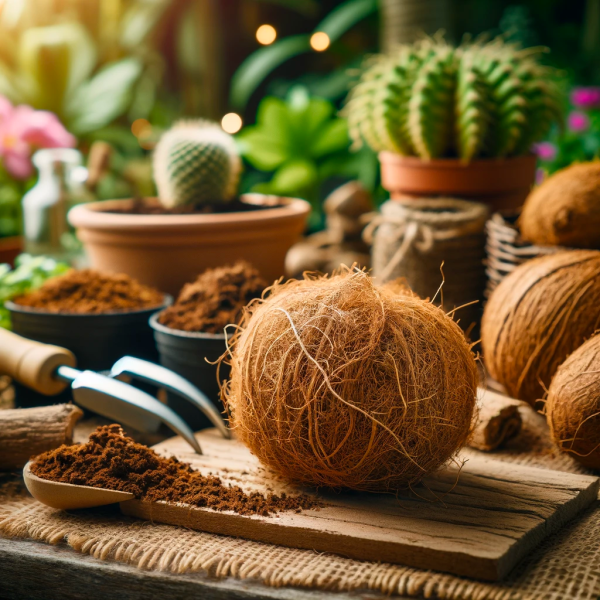
Coco Coir Introduction
Coco Coir, a remarkable soil amendment derived from coconut husks, is taking the gardening world by storm. A byproduct of the coconut industry, it's an eco-friendly alternative to peat moss, offering a host of benefits for gardeners and the environment alike.
In this comprehensive guide, we'll explore the myriad advantages Coco Coir brings to your garden, from its exceptional water retention and aeration properties to its sustainability credentials.
Ideal for a wide range of plants and gardening styles, Coco Coir is not just a soil additive; it's a step towards more conscious and responsible gardening practices.
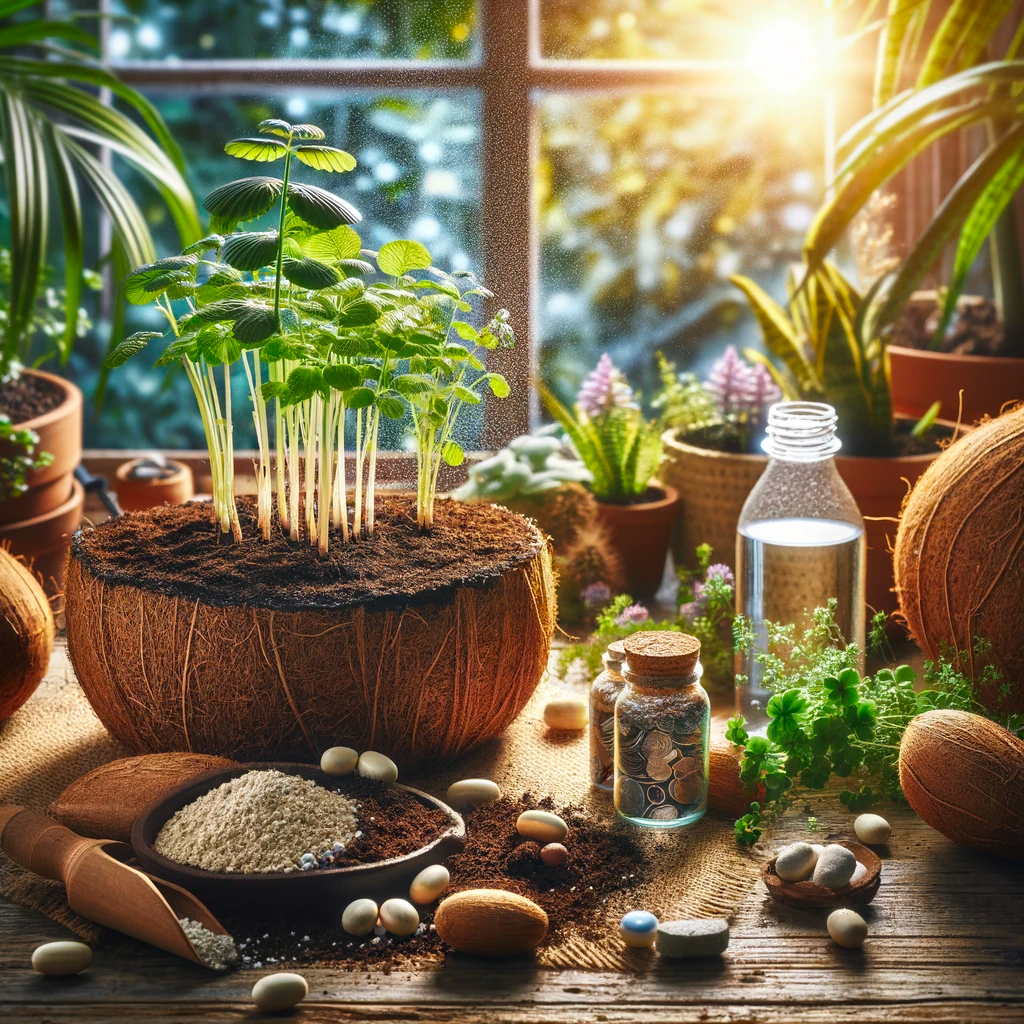
Coco Coir Key Benefits
Coco Coir stands out for its remarkable ability to retain moisture while also providing excellent aeration. This dual capability makes it an ideal soil amendment for a variety of gardening situations.
Its fibrous nature ensures that soil remains loose and well-aerated, promoting healthy root growth and preventing issues like root rot and fungal infections often associated with overwatered soils. Additionally, Coco Coir's natural resistance to pests, mold, and disease adds an extra layer of protection for your plants.
Whether you're cultivating delicate seedlings, growing lush houseplants, or managing a vegetable garden, Coco Coir's ability to maintain a balanced moisture level makes it an indispensable component of your gardening toolkit.

Coco Coir Nutritional Profile
While Coco Coir is not a significant source of nutrients on its own, its neutral pH and excellent water-holding capacity make it an ideal medium for nutrient absorption. It serves as a stable foundation for adding fertilizers, ensuring that your plants receive a consistent supply of nutrients.
Its neutral pH means it's suitable for a wide range of plants, including those that are sensitive to more acidic or alkaline environments. When used in conjunction with nutrient-rich amendments like worm castings or compost, Coco Coir helps create a nutrient-dense environment where plants can thrive.
This balance of moisture retention and nutrient support makes Coco Coir an excellent choice for both hydroponic and traditional soil-based gardening systems.
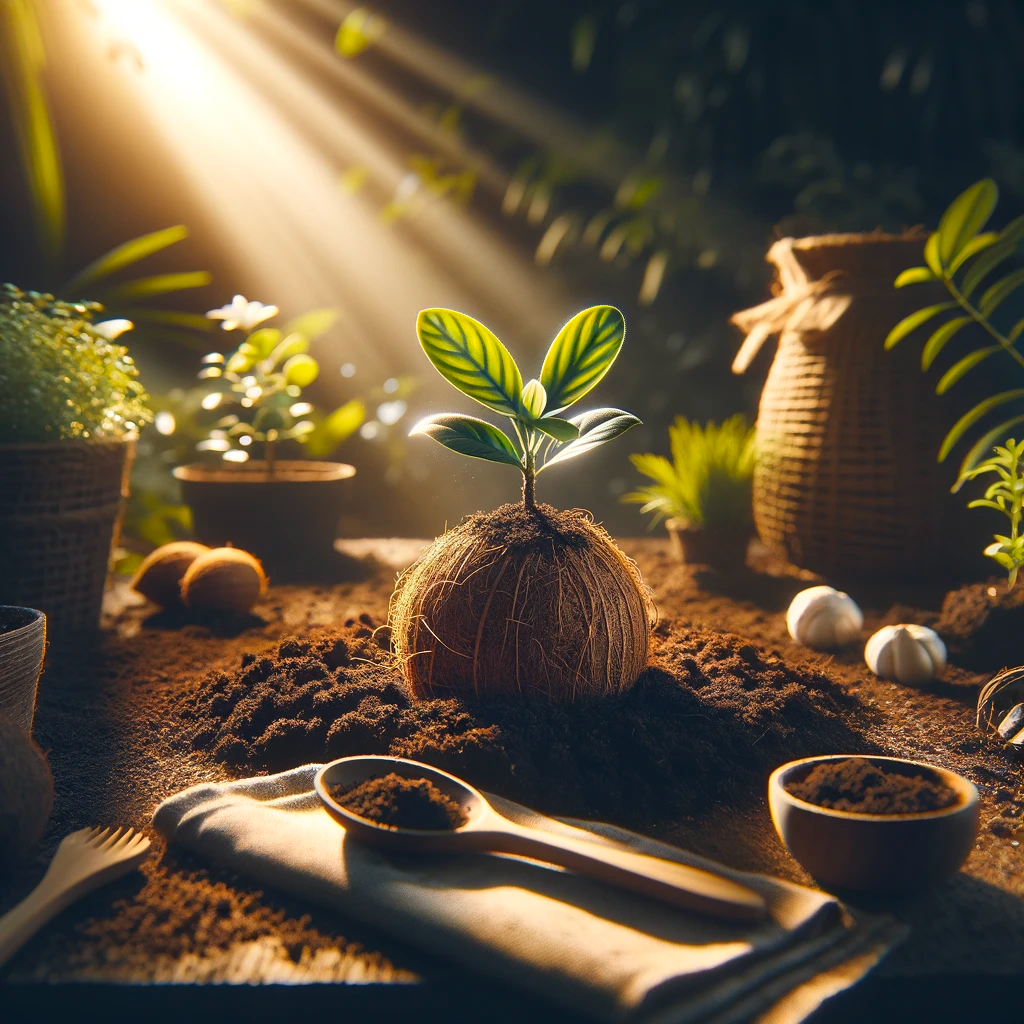
How to Use Coco Coir
Incorporating Coco Coir into your gardening practice is straightforward. Typically sold in compressed bricks or blocks, Coco Coir expands significantly when soaked in water.
Start by rehydrating the Coir in a large container, breaking it apart as it expands. Once it's fully expanded, mix it with your existing soil at a ratio of 1:1 for potting mixes, or up to a 50:50 ratio for more moisture-retentive needs.
Coco Coir can also be used as a standalone growing medium in hydroponics or for starting seeds, as its fine, soft texture is gentle on young roots.
For container gardening, blending Coco Coir with perlite or vermiculite can enhance drainage, preventing water from pooling at the roots.
Remember, while Coco Coir is excellent for retaining moisture, it's low in nutrients, so supplementing with a balanced fertilizer is key to ensuring robust plant growth.

Ideal Plants and Soil Types
Coco Coir's versatility makes it suitable for a wide array of plants and soil types. Its moisture-retentive yet well-draining nature is particularly beneficial for tropical plants, such as orchids and ferns, which thrive in moist, well-aerated soils.
It's also ideal for growing vegetables in containers, where maintaining consistent moisture levels is crucial for healthy growth.
In terms of soil types, Coco Coir is a boon for sandy soils, which struggle to retain water, and for clay soils, which tend to compact and hinder root growth. By adding Coco Coir, sandy soils can better retain moisture and nutrients, while clay soils benefit from improved aeration and structure.
For gardeners dealing with alkaline soils, Coco Coir's neutral pH can help balance the overall pH level, making it more conducive to plant growth.
Its ease of use and effectiveness make it a preferred choice for both novice gardeners and seasoned horticulturists looking to improve their soil quality organically.
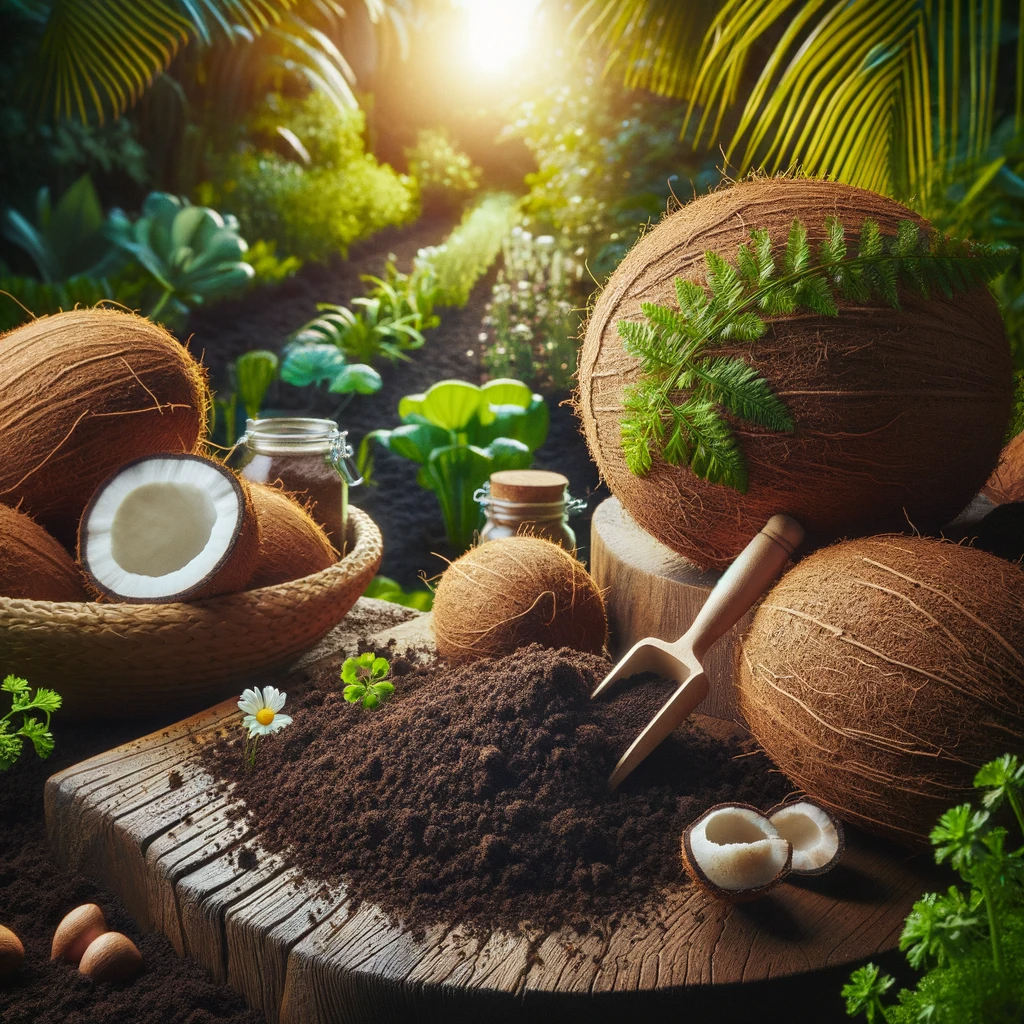
Sustainability and Environmental Impact
Sustainability is at the heart of why Coco Coir is such a valued addition to modern gardening practices. As a byproduct of the coconut industry, it repurposes material that would otherwise go to waste, embodying the principles of sustainable resource use.
Unlike peat moss, which is harvested from peat bogs and can lead to environmental degradation, Coco Coir is a more sustainable and renewable resource. Its production has a lower environmental impact, and its use does not contribute to the depletion of natural ecosystems.
By choosing Coco Coir, gardeners make an environmentally conscious decision that supports sustainable horticulture practices. Additionally, its durability means it doesn't break down quickly in the soil, reducing the need for frequent replenishment and further minimizing its environmental footprint. As more gardeners and commercial growers turn towards sustainable practices, Coco Coir stands out as a responsible choice that benefits not only the plants but also the planet.
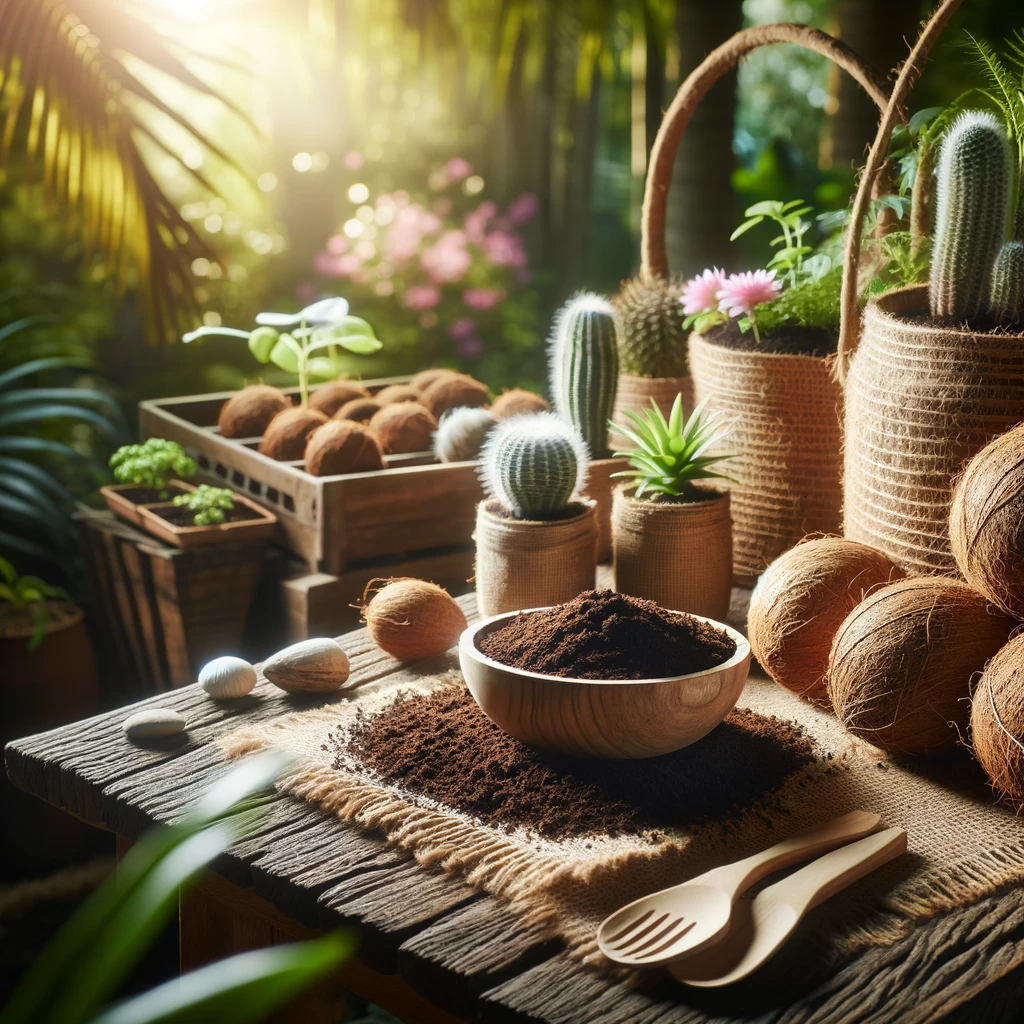
Coco Coir Tips and Tricks
To get the most out of Coco Coir, here are some useful tips and tricks:
- Pre-Rinsing: Although high-quality Coco Coir is generally free from salts, it's a good practice to rinse it before use, especially if it's not labeled as 'low salt' or 'rinsed.'
- Mixing with Other Amendments: Enhance Coco Coir by mixing it with compost, worm castings, or perlite for added nutrients and improved drainage.
- Watering Practices: Adjust your watering schedule as Coco Coir retains more moisture than regular soil. Be cautious not to overwater.
- Reuse and Recycle: Coco Coir can be reused; simply remove old plant roots and refresh it with new compost or worm castings.
- pH Monitoring: Regularly check the pH of your soil mix, especially if you’re growing pH-sensitive plants, as Coco Coir can slightly alter over time.

Coco Coir Conclusion
Coco Coir is a versatile, sustainable, and effective addition to any garden, enhancing soil quality and plant health.
Its ability to retain moisture, improve soil structure, and support environmental sustainability makes it a top choice for conscious gardeners.
Embrace Coco Coir in your gardening practice and witness the transformation in your garden's health and productivity.
Ready to experience the benefits of Coco Coir? Visit our store to explore our range of high-quality Coco Coir products.
Let’s garden smarter and greener together!


